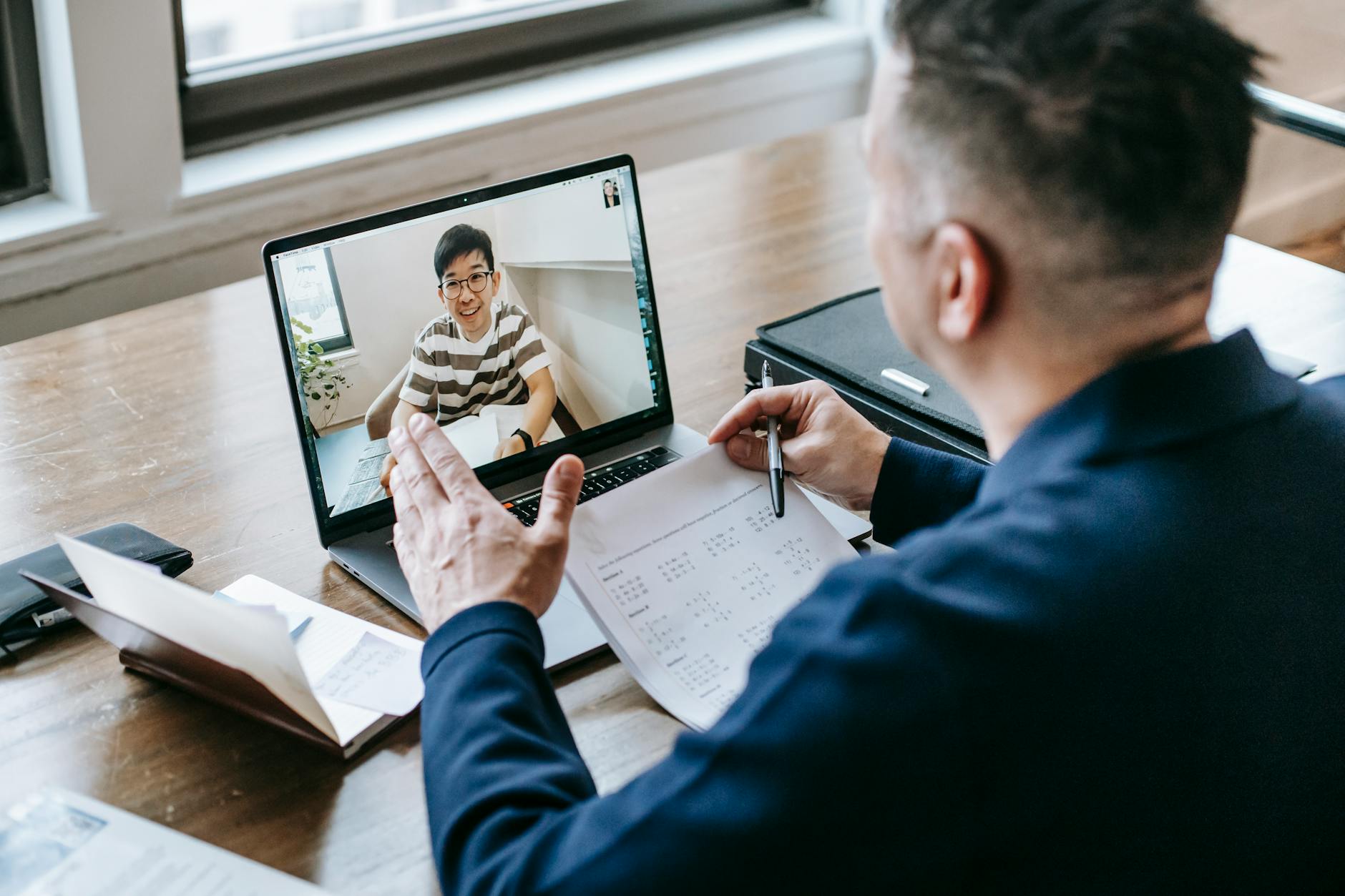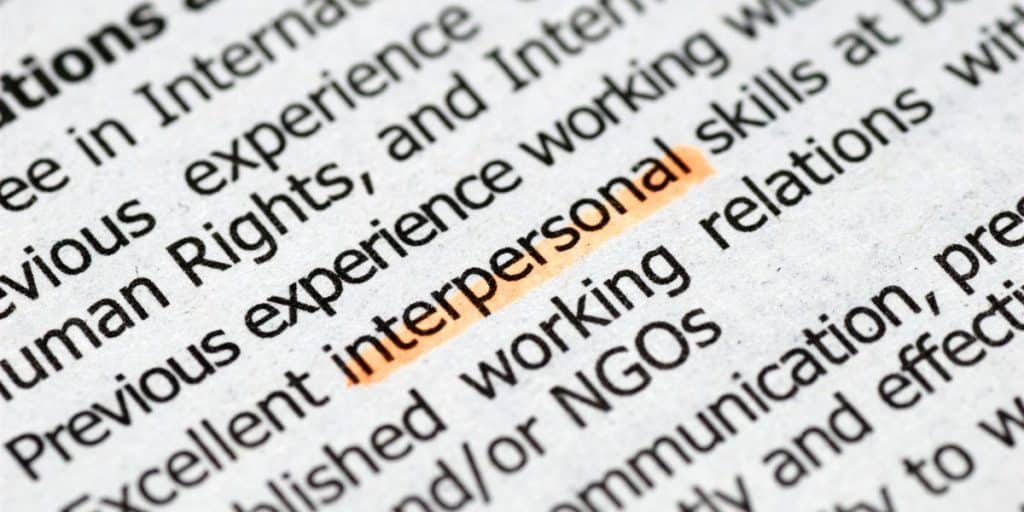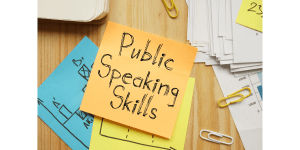Interpersonal communication is an essential life skill that we all need to master. It involves exchanging ideas, thoughts, and emotions with others. It’s what helps us build relationships, resolve conflicts, and negotiate effectively. In this blog post, we’ll explore the key components of interpersonal communication, including relationship building, active listening, empathy, conflict resolution, negotiation, and assertiveness. Whether you’re trying to improve your personal relationships or your professional communication skills, this guide will provide you with practical tips and strategies to help you become a better communicator. So, let’s dive in and start improving your interpersonal communication skills today!
Building Strong Relationships Through Effective Communication

Relationships are the foundation of any successful business or personal endeavor. Whether it’s with clients, colleagues, or friends, building strong relationships is essential for continued growth and success. Communication plays a vital role in building relationships, and it is important to ensure that it is effective and consistent.
One way to build strong relationships is through active listening. This means not only hearing what the other person is saying but also understanding their perspective. By actively listening, you can gain insight into their needs, concerns, and goals. This, in turn, allows you to tailor your communication to meet their needs and build a stronger relationship.
Another important aspect of relationship building is being clear and concise in your communication. This means avoiding vague or ambiguous language that can lead to misinterpretation. Instead, use simple and direct language to ensure that your message is understood.
It can also be helpful to ask open-ended questions to encourage discussion and gain a deeper understanding of the other person’s perspective. This can lead to a more meaningful conversation and a stronger connection between you and the other person.
In addition to communication, it is important to be reliable and consistent in your interactions with others. Follow through on commitments and be responsive to emails and phone calls. This shows that you value the other person’s time and are committed to building a strong relationship.
Lastly, don’t be afraid to show your personality and inject a bit of humor or warmth into your interactions. This can help to build rapport and make the other person feel more comfortable and at ease.
In conclusion, building strong relationships requires effective communication, active listening, clarity, reliability, and a willingness to show your personality. By following these principles, you can create lasting connections that will benefit you both personally and professionally.
Active Listening

Active listening is a critical skill in interpersonal communication. It involves fully focusing on what the speaker is saying, not just hearing their words but also paying attention to their body language and tone. To be an active listener, you need to be fully present in the conversation and avoid any distractions that may prevent you from giving your full attention.
One way to show you are actively listening is by using verbal and nonverbal cues to indicate that you’re engaged in the conversation. For instance, nodding your head, maintaining eye contact, and making appropriate facial expressions. These cues help the speaker feel heard and understood, which can encourage them to share more.
Another important aspect of active listening is asking questions. By asking thoughtful questions, you can clarify any misunderstandings and gain a deeper understanding of the speaker’s perspective. It also shows that you value their opinion and are interested in what they have to say.
Active listening can help improve communication by reducing misunderstandings and conflicts. When people feel heard and understood, they are more likely to be open to feedback and willing to work towards a resolution. It’s a simple yet powerful skill that can benefit any relationship or interaction.
The Importance of Empathy in Interpersonal Communication

Empathy is the ability to understand and share the feelings of others. It is a vital component of effective interpersonal communication. When we empathize with someone, we create a connection and build trust. Empathy allows us to see things from another person’s perspective, which is essential when trying to resolve conflicts or reach a mutually beneficial agreement.
Without empathy, communication can break down, leading to misunderstandings and hurt feelings. For instance, if you are having a conversation with someone who is upset, and you fail to empathize with their emotions, you risk coming across as insensitive or dismissive.
Empathy helps us to be better listeners. When we empathize with someone, we are better able to focus on what they are saying without letting our own biases or opinions get in the way. It also allows us to ask better questions, leading to a clearer understanding of the other person’s needs and concerns.

Incorporating empathy into our interpersonal communication can be challenging, particularly when dealing with people who have different beliefs or values from our own. However, when we approach these conversations with an open mind and a willingness to listen, we can build stronger relationships and create more productive outcomes.
In conclusion, empathy is a crucial component of effective interpersonal communication. It allows us to build trust, create connections, and see things from another person’s perspective. By incorporating empathy into our conversations, we can become better listeners and communicators, leading to more positive outcomes and stronger relationships.
Conflict Resolution

Conflict is an inevitable part of human interaction. It can happen anywhere, at any time, and in any situation. Conflict arises due to differences in opinions, beliefs, or values. It can occur between friends, family, colleagues, or even strangers. Conflict can be a positive force that encourages creativity and growth, but it can also be destructive if not handled appropriately.
There are several ways to resolve conflicts, but the most effective method is by using a collaborative approach. Collaborative conflict resolution emphasizes cooperation, communication, and mutual respect. It involves identifying the root cause of the conflict, expressing concerns and needs, and working towards a mutually beneficial solution.
To resolve conflicts collaboratively, it is essential to listen actively, acknowledge feelings, and communicate effectively. Active listening involves paying attention to what the other person is saying, asking questions for clarification, and summarizing what you have heard. Acknowledging feelings involves recognizing and validating the other person’s emotions without judgment. Effective communication involves using “I” statements, expressing needs and concerns clearly, and focusing on the issue rather than the person.

Collaborative conflict resolution requires a willingness to compromise and find common ground. It is essential to focus on the issue at hand and not get sidetracked by personal attacks or emotions. It is also important to be open-minded and willing to explore alternative solutions. When conflicts are resolved collaboratively, all parties involved feel heard, respected, and valued.
In conclusion, conflict resolution is a critical skill that everyone should possess. Collaborative conflict resolution is the most effective method for resolving conflicts in a way that benefits all parties involved. By using active listening, acknowledging feelings, and communicating effectively, conflicts can be resolved in a way that fosters growth, creativity, and positive relationships.
Negotiation: Getting What You Want in Interpersonal Communication
Negotiation is a crucial aspect of interpersonal communication. Whether you are a business professional, salesperson, or simply trying to resolve a conflict with a friend or family member, negotiation skills are essential to getting what you want. But what exactly is negotiation, and how can you improve your skills?
At its core, negotiation is the process of reaching an agreement through discussion and compromise. In any negotiation, both parties have something they want or need, and the goal is to find a solution that satisfies both parties. The key to successful negotiation is to approach the process with an open mind and a willingness to listen to the other person’s perspective.
One effective negotiation technique is to use active listening skills. This involves focusing on the other person’s message, asking clarifying questions, and summarizing what you hear to demonstrate your understanding. By doing so, you can gain a better understanding of the other person’s needs and goals, which can help you find a mutually beneficial solution.
Another important aspect of negotiation is being clear about your own needs and goals. This involves being assertive without being aggressive, and expressing your thoughts and feelings in a way that is respectful and constructive. By doing so, you can increase the likelihood of finding a solution that meets your needs.
Negotiation is not always easy, and it can be challenging to find a solution that satisfies everyone involved. However, by approaching the process with an open mind, using active listening skills, and being clear about your own needs and goals, you can increase the chances of a successful outcome. Remember, negotiation is not about winning or losing, but about finding a solution that works for everyone.
Assertiveness

Assertiveness is an important aspect of interpersonal communication. It involves expressing one’s thoughts, feelings, and needs in a clear and direct manner, while respecting the rights and opinions of others. Being assertive can help build stronger relationships, increase self-confidence, and reduce stress and anxiety.
However, many people struggle with assertiveness. They may fear that being assertive will lead to conflict, or worry about offending others. They may also struggle to find the right words to express themselves or lack confidence in their ability to communicate effectively.
Fortunately, assertiveness is a skill that can be learned and practiced. It involves finding a balance between passive and aggressive communication styles, and learning to communicate with confidence and respect.
One way to become more assertive is to practice using “I” statements. Instead of blaming or accusing others, focus on expressing your own feelings and needs. For example, instead of saying “You never listen to me,” try saying “I feel frustrated when I don’t feel heard.”
Another important aspect of assertiveness is setting boundaries. This means communicating your limits and expectations to others in a clear and respectful way. For example, if a coworker is constantly interrupting you during meetings, you might say “I appreciate your input, but I would like to finish my thought before we move on.”
Remember, being assertive does not mean being aggressive or disrespectful. It is about finding a way to communicate effectively and assertively while still showing respect for others. With practice, anyone can become more assertive and improve their interpersonal communication skills.
The Importance of Active Listening in Interpersonal Communication

Active listening is a crucial part of effective interpersonal communication. It involves focusing all your attention on the speaker, paying attention to both verbal and non-verbal cues, and responding appropriately. Active listening requires a conscious effort to understand the speaker’s message, and it is a skill that can be developed with practice.
Active listening involves more than just hearing the words that are spoken. It requires you to pay attention to the speaker’s tone of voice, body language, and other non-verbal cues. By doing so, you gain a better understanding of the speaker’s message and can respond in a more meaningful way.
Using open-ended questions can help encourage the speaker to share more information and clarify their message. It also shows the speaker that you are engaged in the conversation and interested in what they have to say. Reflective listening, where you paraphrase back what the speaker has said, can also help ensure that you have accurately understood their message.
Using active listening in interpersonal communication can help build stronger relationships and avoid misunderstandings. It can also help identify and resolve conflicts before they escalate. By showing that you are actively engaged in the conversation, you can demonstrate your interest in the other person’s thoughts and feelings.
In conclusion, active listening is a crucial skill in interpersonal communication. It involves focusing all your attention on the speaker, paying attention to both verbal and non-verbal cues, and responding appropriately. By using open-ended questions and reflective listening, you can ensure that you understand the speaker’s message and respond in a meaningful way.
Conclusion
Effective interpersonal communication is the foundation of building successful relationships, whether in your personal or professional life. The sections covered in this article – relationship building, active listening, empathy, conflict resolution, negotiation, and assertiveness – are important elements that contribute to developing strong communication skills.
By improving your communication skills, you can build better relationships, reduce misunderstandings, and resolve conflicts more effectively. It’s essential to practice active listening and show empathy towards others to understand their perspective better. Conflict resolution and negotiation skills are important when dealing with disagreements or reaching an agreement.
In conclusion, developing good interpersonal communication skills is an ongoing process that requires patience and practice. By incorporating the strategies discussed in this article, you can become a better communicator, build stronger relationships, and achieve your goals. Remember, effective communication is not just about what you say, but also how you say it, and how well you listen to others.












